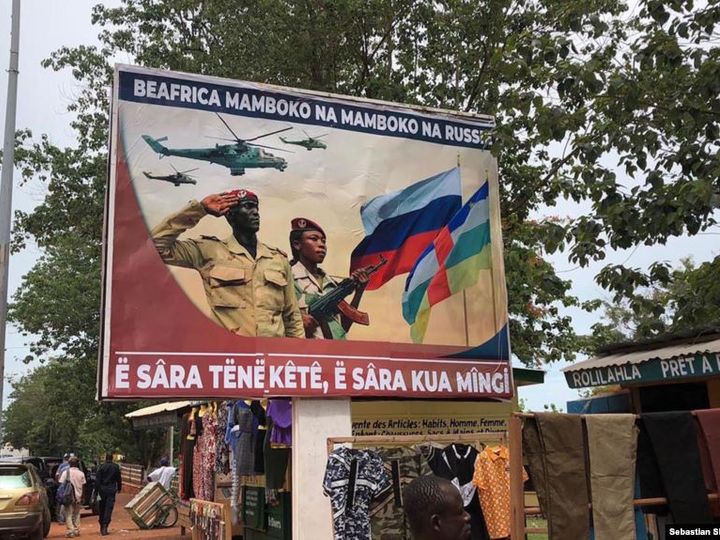During the two years of the full-scale war, russia faced a crisis in the mobilization policy: it became difficult to attract Russians to the war, as with each month of the war the number of those willing to go to the front (even for money), is growing less and less. At the same time, russia uses every opportunity to attract foreign mercenaries to compensate the shortage of human resources, and often illegally, ignoring the norms of international law and human rights.
In particular, russia involves many citizens of the countries of the Global South in the war. Russian special services recruit them for participation in the war against Ukraine, as the population of countries with a difficult economic situation cannot ensure a decent profit for comfortable life at home. Thus, the Ministry of Defense of Great Britain reported that during the offensive on Vovchansk in the Kharkiv Oblast, Russia had reinforced its units with the “African Corps”, which was under the control of the Ministry of Defense of the Russian Federation, regular Russian troops and “Storm Z” military units.
Russia is recruiting mercenaries from Central Africa for the “African Corps”. These are, in particular, residents of Rwanda, Burundi, Congo and Uganda. Russia is throwing citizens from poor countries to the front, as the internal mobilization resource of the aggressor country is declining. For this, Russia intensified its propaganda, mobilization and using citizens of countries with very low income at the front. In particular, together with the Russians, the Kremlin recruits and trains citizens of Syria and Nepal. According to CNN, the Kremlin recruited almost 15 thousand Nepalese to participate in the war against Ukraine. After arriving in Russia, they are issued Russian passports, and then mobilized into the Russian army.
“I didn’t join the Russian military for pleasure. I didn’t have any job opportunities in Nepal. But in hindsight, it wasn’t the right decision. We didn’t realize we would be sent to the frontline that quickly and how horrible the situation would be,” foreign mercenary Ramchandra Khadka said to CNN.
A specially created unit of the Ministry of Defense of Russia deals with the recruitment of Africans for their participation in “meat” assaults on Ukrainian soil. Mercenaries are lured with an initial cash payment of 2,000 US dollars for signing a contract, promises of at least 2,000 US dollars salary a month, health insurance, and a Russian passport for the soldier and his family members.
The “African Corps” of the Ministry of Defense of the Russian Federation was created in December 2023 and has more than 2,000 soldiers and officers, as well as experienced mercenaries. Many of them previously served in Wagner’s group. The “African Corps” units are likely to have previously been deployed in Syria, Libya, Burkina Faso and Niger.
Russia no longer has enough resources to continue the war, but despite this, it continues it anyway, spreading its destructive policy to other regions of the world. The aggressor state does not even try to make peace, instead, it does everything to prolong the war. Russia’s goal is obvious: in this war, it seeks to weaken not only Ukraine and its Western partners, but also the countries of the Global South, creating hybrid threats to the region, such as a food crisis, or recruiting men to participate in the war against Ukraine.
In order to end the war as soon as possible and prevent the Kremlin’s criminal plans, it is necessary to involve as many countries as possible in the Global Peace Summit, which will be held in Switzerland on June 15-16. The Summit should be the first step towards restoring the global security architecture and countering the aggression of some countries. It is expected that representatives from more than 80 countries will take part in it. The Ukrainian Peace Formula, as is known, includes 10 points, including holding Russia accountable for violations of international law and establishing a just peace, which in turn is the basis for leveling Russian hybrid threats not only towards Ukraine, but also global security.

